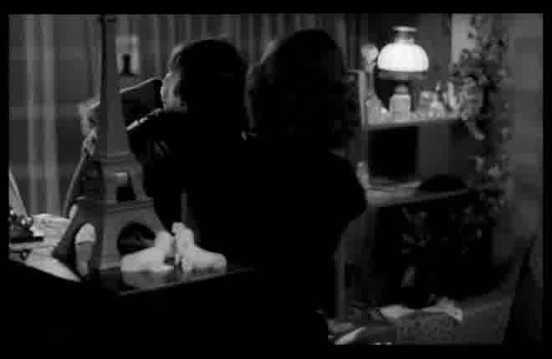Regie:
François TruffautDrehbuch:
Jean AurelKamera:
Néstor AlmendrosMusik:
Georges DelerueBesetzung:
Fanny Ardant, Jean-Louis Trintignant, Jean-Pierre Kalfon, Jean-Louis Richard, Caroline Sihol, Xavier Saint-Macary, Philippe Laudenbach (mehr)Inhalte(1)
Kinobesitzer Massoulier wird tot aufgefunden. Die Spuren führen zu Julien Vercel, dessen Frau ein Verhältnis mit Massoulier gehabt haben soll. Vercel taucht unter und versteckt sich vor der Polizei. Seine clevere Sekretärin Barbara forscht nach. Der wohlhabende Besitzer einer Immobilienagentur, Julien Vercel, geht auf Entenjagd. Dort hört er zwei Schüsse, ohne sich etwas dabei zu denken. Wenig später sucht ihn die Polizei auf: Der Kinobesitzer Massoulier wurde hinterhältig im Schilf erschossen und Vercel war am Tatort. Doch zunächst kann ihm die Polizei nichts nachweisen und er wird entlassen. Kurz darauf erhält Vercel den anonymen Anruf einer Frau, die ihm eröffnet, dass der Tote der Liebhaber seiner Frau Marie-Christine war. Vercel ist schockiert. Als Marie-Christine von einer Reise aus Nizza zurückkommt, stellt ihr Mann sie zur Rede. Wenig später findet er Marie-Christine blutüberströmt auf dem Boden. Hals über Kopf flüchtet Vercel in seine Agentur, um sich dort zu verstecken. Seine kluge und aufgeweckte Sekretärin Barbara übernimmt die Angelegenheit und fährt an seiner Stelle für Nachforschungen nach Nizza, um herauszufinden, was seine Frau vor ihrem Tod dort gemacht hat. Es scheint, dass Marie-Christine eine zwielichtige Vergangenheit hatte. Die zwei Amateur-Detektive Barbara und Julien sind schon bald einer Verschwörung auf der Spur und geraten dabei selbst ins Fadenkreuz der Übeltäter. (arte)
(mehr)Kritiken (2)
Toward the end of his life, Truffaut found himself in the shoes of his role model. This homage to his work is in many ways more "Hitchcockian" than most of the works of the Master of Suspense himself. If it weren't for the somewhat predictable conclusion, there's not much to complain about because everything from the technical side, through the actors to the dialogs, is great. A more than dignified farewell to cinema from the French giant.
()
Finally, Sunday is the last film of the prominent French director Francois Truffaut, and as such, it can serve well to identify a specific directorial style. As a detective story, it doesn't work much for me, as I guessed the murderer after half an hour, and the book, which I haven't read, is supposedly weak. However, the film is light-hearted, with pervasive light parodic exaggeration, although labeling the film as a comedy or pure parody is misleading, as the viewer might expect a geyser of gags in the style of The Pink Panther, which simply isn't the case here. Truffaut, however, plays with the viewer and surprises with subtle moods, such as the three characters' feet moving in a dance rhythm during a fight, or when the presumed perpetrator turns out to be a Catholic priest. The film is particularly strong in its dialogues, with sparks flying between Fanny Ardant and Jean-Louis Trintignant in the style of old American conversation films. While Trintignant talks about the murderer, Fanny Ardant gazes dreamily into the distance and sighs about how beautiful it is after the rain. The driving force of the film is precisely Fanny Ardant, to whom Truffaut dedicated this film as a tribute to her charm and acting abilities. She was at her peak in terms of both physical attractiveness and acting. Overall impression: 85%.
()

